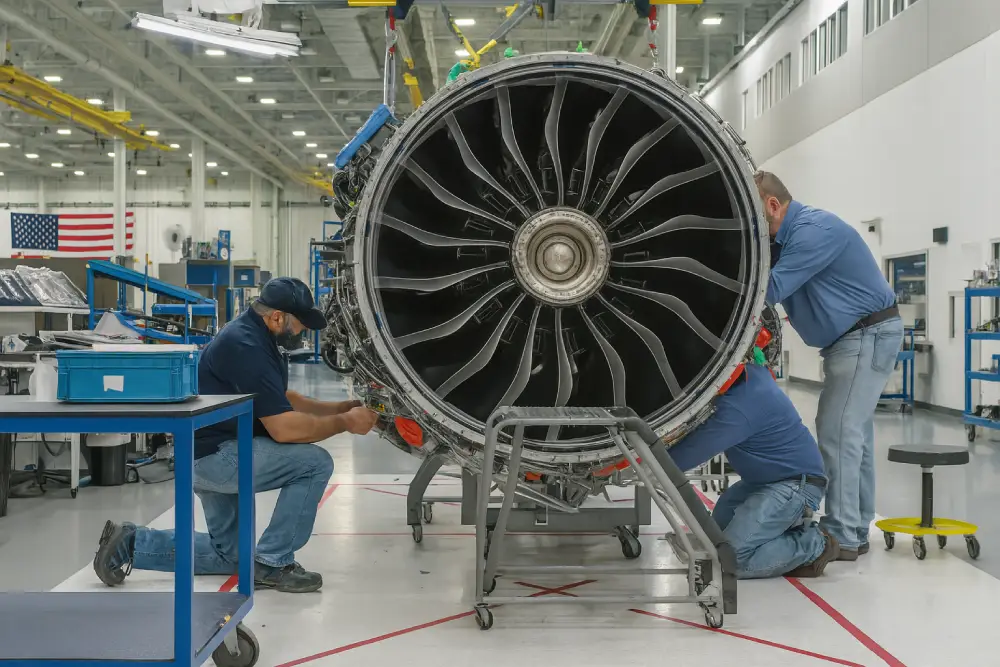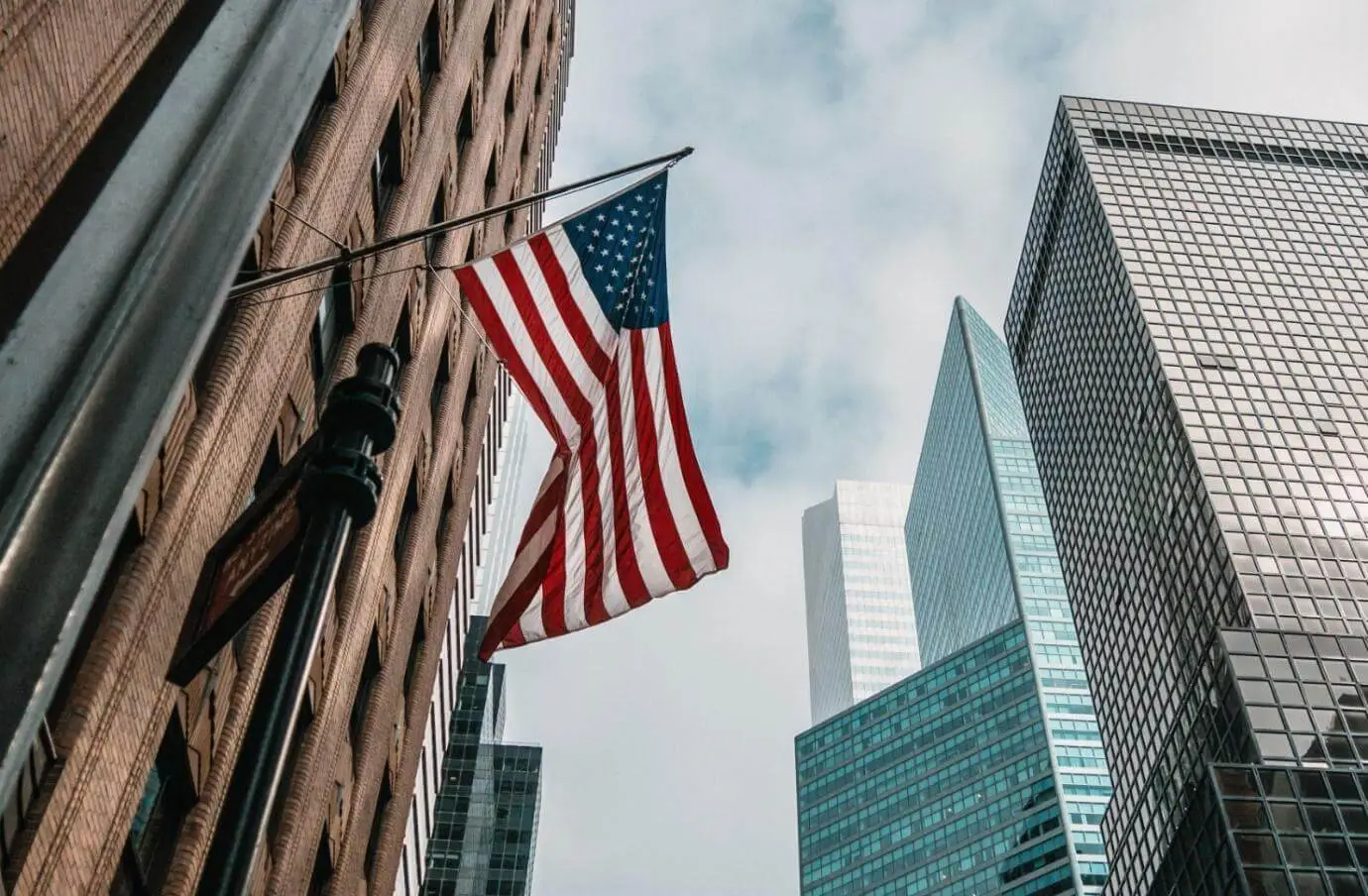The U.S. aviation industry is facing a critical shortage of certified professionals in aircraft inspection and maintenance. This skills gap has created a valuable immigration pathway for foreign engineers and aircraft maintenance technicians.
If you have the right qualifications and experience, you may be eligible to apply for a green card through the EB2 NIW for Engineers & Aircraft Maintenance Technicians. This program allows skilled foreign professionals to bypass the usual employer sponsorship and apply directly, provided their work is deemed to benefit the national interest of the United States.
Understanding the EB2 NIW for Engineers
The EB-2 NIW program offers foreign professionals and their dependents a straightforward pathway to green card and US citizenship without the need to secure a job offer. This pathway has become increasingly valuable for engineers, particularly given the current shortage of technical professionals across multiple industries.
Key Requirements for EB2 NIW Eligibility
To qualify for the program, the applicant must demonstrate:
- They either possess exceptional ability or an advanced degree relevant to their expertise
- Their proposed endeavor is of substantial merit and national importance
- They are well-positioned to conduct the project
- On balance, it would be beneficial to the USA to waive the job offer requirement
Advanced Degree Requirements for Engineers
Engineers typically qualify through the advanced degree route. Acceptable qualifications include:
- Master’s degree in engineering or related technical field
- Bachelor’s degree plus 5 years of progressive work experience
- Foreign equivalent degrees with proper credential evaluation
Exceptional Ability Criteria for Engineers
Engineers may also qualify by demonstrating exceptional ability through at least three of the following:
- Official academic record showing a degree in engineering
- Letters from employers documenting at least 10 years of experience
- Professional licenses or certifications
- Evidence of salary or remuneration for services demonstrating exceptional ability
- Membership in professional associations
- Recognition for achievements and contributions by peers, government entities, or professional organizations
Current Challenges and Opportunities in 2025
The EB2 NIW landscape has shifted dramatically in 2025. Recent data shows approval rates declining from previous highs, making expert legal guidance more crucial than ever. Understanding these changes is essential for engineering professionals considering this immigration pathway.
USCIS Policy Updates Affecting Engineers
Recent USCIS guidance has introduced stricter evaluation standards, particularly for demonstrating national importance and exceptional ability. Engineers must now provide more comprehensive evidence of their contributions to U.S. interests.
Processing Times and Premium Processing
Current processing times for I-140 petitions range from 6 to 15 months for standard processing. eb2 premium processing is available for an additional $2,805 fee, reducing processing time to 15-45 days for the initial decision.
Aviation Industry Crisis and Engineering Opportunities
Considering the recent shortages of aircraft professionals in the US, individuals in the aviation industry, in particular, AMEs and technicians, would be suitable candidates for the EB2 national interest waiver program.
Aviation Mechanics Shortage Statistics
Pilot shortages have dominated headlines over the past year, yet the US aviation industry is now expected to face another wave of personnel inadequacy crisis – namely, an undersupply of aviation maintenance workers. Statistics-wise, it is anticipated a shortfall of around 24,000 AMEs in North America, and such a figure may reach 40,000 by 2028 (Statista).
In addition to impeding airlines’ operations and the maintenance of aircraft systems and safety, a lack of AMEs may adversely impact the US aviation sector and its national development. Following this, foreign AMEs have a high likelihood of meeting the EB-2 NIW program‘s national importance requirement listed above.
Engineering Specializations in High Demand
Beyond aviation, several engineering disciplines face significant shortages:
- Civil Engineers: Infrastructure modernization projects
- Electrical Engineers: Power grid upgrades and renewable energy
- Software Engineers: Cybersecurity and AI development
- Mechanical Engineers: Manufacturing and automation systems
Qualification Requirements for Aircraft Maintenance Engineers
That being said, not every AME qualifies for the EB-2 NIW program without the necessary certification. It is important to keep in mind that only highly experienced aircraft maintenance engineers who hold either an FAA aviation mechanic license or other major licenses from around the world that are compatible with FAA licensing and have expertise in inspection and aircraft systems could be eligible for this program.

FAA Certification Requirements
Aircraft maintenance engineers must demonstrate:
- Valid FAA Airframe and Powerplant (A&P) certification, or
- Foreign equivalent certifications recognized by FAA
- Minimum 5 years of hands-on maintenance experience
- Specialized training in modern aircraft systems
International License Recognition
Engineers with the following international certifications may qualify:
- EASA Part-66 licenses (European Aviation Safety Agency)
- Transport Canada AME licenses
- CASA licenses from Australia
- Other ICAO member state certifications with FAA recognition
Building a Strong EB2 NIW Petition for Engineers
Many may already be aware that the approval of the EB-2 application, including the verification of your certification, is entirely at the discretion of the USCIS officer who reviews the application. Therefore, the applicants must prepare properly drafted petitions and demonstrate how they meet the EB-2 NIW criteria fully.
Documentation Requirements
Engineers must compile comprehensive evidence including:
- Official transcripts and degree certificates
- Professional licenses and certifications
- Employment letters detailing responsibilities and achievements
- Evidence of salary progression demonstrating exceptional ability
- Patents, publications, or technical innovations
- Awards and professional recognition
Demonstrating National Importance
Engineers must clearly articulate how their work benefits U.S. national interests:
- Addressing critical infrastructure needs
- Contributing to technological advancement
- Supporting national security objectives
- Enhancing economic competitiveness
Building the Substantial Merit Argument
The petition must demonstrate that the proposed work has substantial merit through:
- Technical complexity and innovation
- Potential economic impact
- Addressing urgent national needs
- Contributing to public safety or welfare
Step-by-Step EB2 NIW Process for Engineers
Phase 1: Eligibility Assessment and Documentation
The process begins with a thorough evaluation of qualifications and gathering of supporting documentation. This phase typically takes 2-3 months to complete properly.
Phase 2: Petition Preparation and Filing
Once documentation is complete, the I-140 petition is prepared and filed with USCIS. This includes crafting persuasive legal arguments and organizing evidence effectively.
Phase 3: USCIS Review and Response
USCIS reviews the petition, which may result in approval, denial, or a Request for Evidence (RFE). Response times vary based on processing center and whether premium processing is used.
Phase 4: Priority Date and Adjustment of Status
Upon I-140 approval, engineers can proceed with adjustment of status (if in the U.S.) or consular processing (if abroad) to obtain their green card.
Common Challenges and How to Overcome Them
Request for Evidence (RFE) Trends
Recent RFE patterns for engineers focus on:
- Insufficient evidence of exceptional ability
- Unclear articulation of national importance
- Inadequate documentation of qualifications
- Weak evidence of well-positioned status
Addressing Documentation Gaps
Engineers often face challenges with:
- Foreign credential evaluation
- Translating technical achievements into legal arguments
- Demonstrating quantifiable impact
- Obtaining letters of support from industry experts
Cost Considerations for EB2 NIW for Engineers
Government Filing Fees
- I-140 petition filing fee: $2,805 (includes premium processing if selected)
- Standard processing I-140 fee: $700
- Adjustment of status fees (if applicable): Additional costs
Legal and Professional Costs
- Attorney fees vary based on case complexity
- Credential evaluation services
- Document translation costs
- Expert witness fees (if needed)
Timeline Expectations in 2025
Standard Processing Timeline
- Petition preparation: 2-3 months
- USCIS processing: 6-15 months
- RFE response (if applicable): 3-6 months additional
- Priority date wait (if applicable): Varies by country
Premium Processing Benefits
Premium processing reduces the initial I-140 decision to 15-45 days but doesn’t affect overall green card timeline if priority dates are not current.
Success Factors for Engineering Professionals
Strong Technical Background
Engineers with advanced degrees, specialized certifications, and progressive work experience have higher success rates. The combination of technical expertise and professional achievement strengthens the petition significantly.
Industry Recognition
Awards, publications, patents, and professional memberships demonstrate exceptional ability and industry recognition, crucial elements for EB2 NIW approval.
Clear National Interest Connection
Successful petitions clearly articulate how the engineer’s work addresses specific U.S. national interests, whether in infrastructure, technology, security, or economic development.
Working with Experienced Immigration Counsel
Harvey Law Group had secured nearly 200 approvals for individuals with aviation backgrounds, inclusive of commercial, private/charter pilots, and helicopters. With decades of experience researching the industry and drafting NIW petitions in a variety of situations, we are equipped to ensure that your petition will fully highlight all your unique qualities.
The Value of Specialized Experience
Working with attorneys who understand both the technical aspects of engineering work and the legal requirements of EB2 NIW petitions significantly improves success rates. This specialized knowledge helps translate technical achievements into compelling legal arguments.
Comprehensive Case Preparation
Experienced counsel can:
- Conduct thorough eligibility assessments
- Identify potential weaknesses before filing
- Develop persuasive legal strategies
- Prepare for potential RFEs
- Navigate complex procedural requirements
Frequently Asked Questions
What are the basic requirements for EB2 NIW for engineers in 2025?
Engineers must demonstrate either an advanced degree (Master’s or higher) or exceptional ability, prove their work has substantial merit and national importance, show they are well-positioned to advance their endeavor, and establish that waiving the job offer requirement benefits the United States. With Harvey Law Group’s three decades of experience in immigration law, we’ve successfully guided nearly 200 aviation professionals through this complex process, ensuring each petition meets these evolving USCIS standards.
How long does the EB2 NIW process take for engineers?
The complete EB2 NIW process typically takes 12-24 months, including 2-3 months for petition preparation and 6-15 months for USCIS processing. Premium processing reduces the I-140 decision time to 15-45 days for an additional $2,805 fee. Harvey Law Group’s experienced team streamlines the preparation phase through our systematic approach, developed over decades of handling technical professional cases, potentially reducing overall timeline delays.
Can aircraft maintenance engineers qualify for EB2 NIW without employer sponsorship?
Yes, highly experienced aircraft maintenance engineers with FAA A&P certification or equivalent international licenses can qualify for EB2 NIW, especially given the critical shortage of 24,000 AMEs projected in North America. The aviation industry crisis strengthens the national importance argument significantly. Harvey Law Group has secured nearly 200 approvals for aviation professionals, including commercial pilots, private charter pilots, and helicopter operators, making us uniquely positioned to handle AME cases.
What engineering specializations have the highest EB2 NIW approval rates?
Civil engineers working on infrastructure, electrical engineers in renewable energy and power grid modernization, software engineers in cybersecurity and AI, and mechanical engineers in advanced manufacturing typically see strong approval rates due to clear national importance. Aviation and aerospace engineers face particularly favorable conditions given current industry shortages. Harvey Law Group’s specialized experience across these technical fields allows us to craft compelling national interest arguments that resonate with USCIS adjudicators.
How much does an EB2 NIW petition cost for engineers including legal fees?
Total costs typically range from $8,000-$15,000, including the $700 USCIS filing fee ($2,805 with premium processing), attorney fees, credential evaluations, and document preparation. Investment varies based on case complexity and documentation requirements. Harvey Law Group provides transparent fee structures and comprehensive service packages that ensure your petition highlights all unique technical qualifications, maximizing approval chances while providing excellent value for our decades of specialized expertise.
Do engineers need job offers or labor certification for EB2 NIW applications?
No, the National Interest Waiver specifically eliminates the job offer and labor certification requirements that typically apply to EB2 petitions. Engineers can self-petition directly, demonstrating that their work benefits U.S. national interests sufficiently to waive these requirements. Harvey Law Group’s proven track record includes guiding technical professionals through this self-petition process, leveraging our deep understanding of how to present engineering expertise in the most compelling legal framework.
What documentation do engineers need for a successful EB2 NIW petition?
Essential documentation includes degree transcripts, professional licenses, employment letters detailing technical achievements, evidence of exceptional ability (awards, publications, patents), salary progression records, and expert recommendation letters. International engineers need credential evaluations and certified translations. Harvey Law Group’s systematic documentation approach, refined through nearly 200 successful aviation cases, ensures comprehensive evidence compilation that addresses every USCIS requirement while highlighting your unique technical contributions.
Can engineers with only bachelor’s degrees qualify for EB2 NIW?
Yes, engineers with bachelor’s degrees plus five years of progressive work experience can qualify for EB2 classification and subsequently for NIW. Alternatively, they can demonstrate exceptional ability through professional achievements, recognition, and specialized expertise. Harvey Law Group excels at building compelling cases for engineers across all educational backgrounds, utilizing our extensive experience to transform technical accomplishments into persuasive legal arguments that meet USCIS standards.
What happens if my EB2 NIW petition receives a Request for Evidence (RFE)?
RFEs are common and provide opportunities to strengthen your case by addressing USCIS concerns about eligibility, national importance, or documentation. Typical engineering RFEs focus on demonstrating exceptional ability or clarifying the national impact of technical work. Harvey Law Group’s proactive approach anticipates potential RFE issues during initial preparation, and our experienced team has successfully responded to hundreds of RFEs, turning potential obstacles into approval opportunities through strategic evidence presentation.
Are family members included in EB2 NIW petitions for engineers?
Yes, spouses and unmarried children under 21 are included as derivative beneficiaries and will receive green cards simultaneously with the primary engineer applicant. Family members don’t need separate petitions but must meet admissibility requirements. Harvey Law Group’s comprehensive family immigration services ensure all family members are properly included and prepared for the entire process, drawing on our decades of experience handling complex family cases alongside professional immigration matters.
How do recent USCIS policy changes affect EB2 NIW applications for engineers in 2025?
Recent USCIS guidance has introduced stricter evaluation standards for exceptional ability and national importance, making expert legal representation more crucial than ever. Engineers now need more comprehensive evidence and stronger legal arguments to demonstrate their contributions to U.S. interests. Harvey Law Group stays current with all policy changes and has adapted our petition strategies accordingly, ensuring our engineering clients’ cases meet the evolving standards while highlighting their technical expertise effectively.
What is the success rate for EB2 NIW petitions filed by engineers?
While overall EB2 NIW approval rates have fluctuated in recent years, engineers in high-demand specializations typically see favorable outcomes when properly represented. Success depends heavily on case preparation quality, documentation completeness, and legal strategy. Harvey Law Group’s track record of nearly 200 approvals for aviation and technical professionals demonstrates our ability to navigate this complex process successfully, utilizing our specialized knowledge to maximize approval chances for engineering clients.
Conclusion: Your Path to U.S. Permanent Residence
The EB2 NIW for engineers offers a valuable opportunity to obtain U.S. permanent residence without employer sponsorship. While the process has become more challenging in 2025, qualified engineers with proper legal guidance can still achieve success.
The key to a successful EB2 NIW petition lies in thorough preparation, comprehensive documentation, and expert legal representation that understands both the technical aspects of engineering work and the evolving requirements of immigration law.
For engineers considering this pathway, early consultation with experienced immigration counsel can help assess eligibility, identify potential challenges, and develop a winning strategy for achieving permanent residence in the United States.




